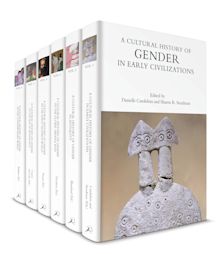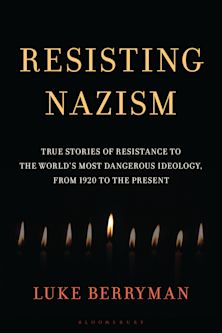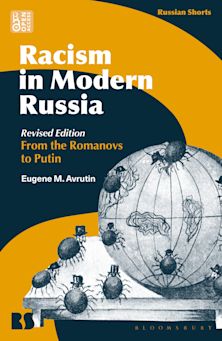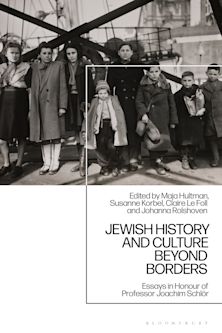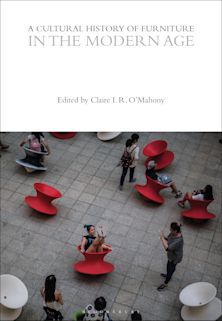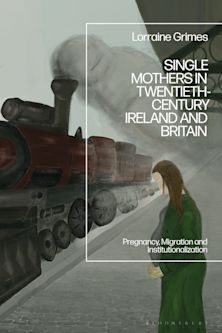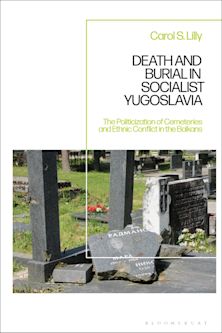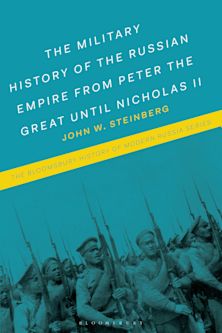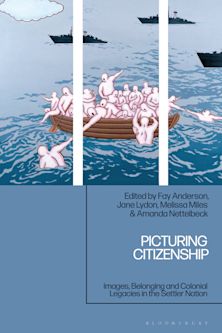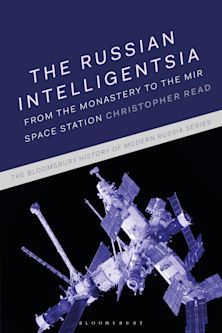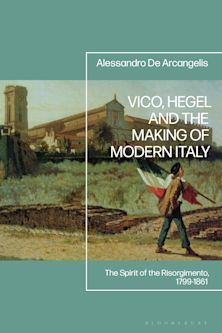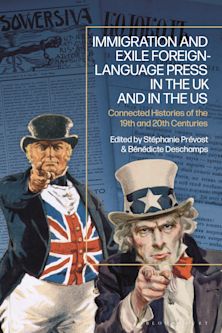- Home
- ACADEMIC
- History
- Modern History
- Liberty and Liberticide
Liberty and Liberticide
The Role of America in Nineteenth-Century British Radicalism
Liberty and Liberticide
The Role of America in Nineteenth-Century British Radicalism
This product is usually dispatched within 1 week
- Delivery and returns info
-
Free US delivery on orders $35 or over
You must sign in to add this item to your wishlist. Please sign in or create an account
Description
America was important to many British radicals. It was a model, an exemplar, a source of inspiration, and American events were believed to have a bearing on reform debates in Britain. Many scholars focus on the positive impressions of the United States that prominent British radicals entertained, developed, and propagated, but it is necessary also to explore the reasons why some radicals condemned rather than praised America, and to explain how America was conceptualized and used by them, and to what purpose.
Liberty and Liberticide focuses on the influence America exerted over the ideas and activities of nineteenth-century British radicals. While some looked on America as the model of liberty, others associated it with the destruction of liberty. Turner shows how radicals’ views about the United States and the course of Anglo-American relations shaped their domestic reform agenda and their assumptions about British political values and Britain’s place in the world.
Table of Contents
Introduction
Chapter 1The Politics and Rhetoric of Admiration
Chapter 2Eulogies with Reservations
Chapter 3The Growth of Anti–Americanism: Tariffs, Slavery, and U.S. Foreign Policy
Chapter 4American Crisis, part one
Chapter 5American Crisis, part two
Chapter 6After the Civil War
Chapter 7Late Nineteenth–Century Political and Economic Contexts
Conclusion
Index
Product details
| Published | Nov 15 2013 |
|---|---|
| Format | Hardback |
| Edition | 1st |
| Extent | 288 |
| ISBN | 9780739178171 |
| Imprint | Lexington Books |
| Dimensions | 9 x 6 inches |
| Publisher | Bloomsbury Publishing |
About the contributors
Reviews
-
The author examines the political, economic, social, and diplomatic interactions between Britain and the US through the eyes of British radicals. . . . Scholars familiar with the themes and debates among radical British politicians may well profit from the labors that went into this book. . . . Some radicals favored US ways, some did not, and some were of mixed opinion; but the second grouping was certainly a minority during the 19th century, when radicals were trying to reform British society and politics. . . . Summing Up: Recommended. Graduate students/faculty.
Choice Reviews
-
Turner’s work adds to a strong and growing tradition of Anglo-American transnational history. Adeptly explicating British reform literature, it is sensitive to how radical views changed over time. It adequately covers the major events of Anglo-American relations such as border diplomacy, the annexation of Texas, the Trent affair, the Alabama claims, and the Fenian controversies of the 1860s. . . .Ultimately, the book will be . . . useful to historians of nineteenth-century Britain.
Journal of American History
-
Liberty and Liberticide represents a valuable contribution to the growing literature on the transatlantic dimensions of British radicalism. Michael Turner’s thought-provoking and insightful study provides a salutary demonstration that America’s status as the bastion of liberty was never accepted universally or uncritically in Britain, even by those who championed democratic reform at home and overseas. This book will be of interest to students of nineteenth-century radicalism, and should be read by anyone who wants a deeper understanding of the complexities and ambiguities of British attitudes towards America before, during and after the American Civil War.
Simon Morgan, Leeds Metropolitan University, UK
-
Long overdue, this important and ground-breaking study of nineteenth-century British radical views of the United States will become the definitive account.
Duncan Andrew Campbell, National University
-
Michael J. Turner’s Liberty and Liberticide: The Role of America in Nineteenth-Century British Radicalism is not simply a welcome addition to a body of scholarship on what the British thought of America and what the Americans thought of Britain. Rather, Turner has written a book that is far-ranging in its chronological coverage and that explores these views in greater depth than other historians. He addresses the views of both working-class and middle-class radicals, uncovering the nuances, ambiguities, and ironies that characterized British Radical confrontation with democracy (or the lack thereof) in America. Well organized, thoroughly researched, and gracefully written, Turner’s book is both thought-provoking and a pleasure to read. It speaks to the interests of both Americanists and British historians and deserves a wide audience.
Denis Paz, University of North Texas












